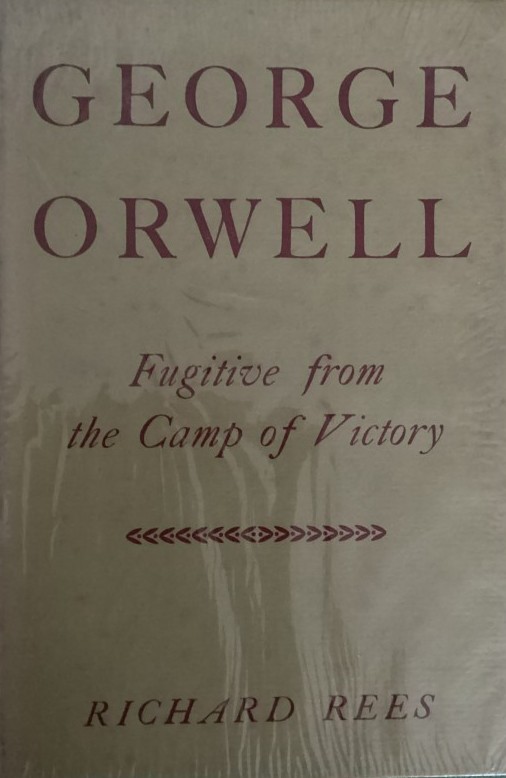Inspiring Older Readers
 posted on 18 Feb 2024
posted on 18 Feb 2024
George Orwell: Fugitive from the Camp of Victory by Richard Rees
Few people knew George Orwell better than Richard Rees. Rees was an aristocrat – full name Sir Richard Lodowick Edward Montagu Rees, 2nd Baronet – who had a pretty extraordinary curriculum vitae. Born in 1900 and bound, it would seem to a career in international diplomacy, he actually became a lecturer for the Workers Education Association in 1925 and by 1930 he had become editor of John Middleton Murray’s Adelphi literary magazine – which is where he encountered Orwell for the first time and began a 20 year association. Later he would drive ambulances in the Spanish Civil War and became a notable author in his own right.
Rees might, it would seem, have been an obvious candidate to write the first biography of Orwell were it not for the author’s own express wishes that no such biography should exist. Rees, along with one or two others, took the view that if no biography was possible then the best that could be done would be a critical portrait based on his work. And, although later literary executors decided that the no-biography firewall would be impossible to sustain (and at least half a dozen have subsequently appeared), I would argue Rees’ critical profile is, in many ways, every bit as good as a detailed, laborious blow-by-blow biography.
Although Rees counted himself a firm friend of Orwell, this is not a work of slavish hagiography. Far from it in fact because Rees maintains a solidly rigorous approach to what he sees as the author’s strengths and weaknesses. What I did like very much was his starting point: that Orwell’s first novels – the ones that precede Animal Farm and Nineteen-Eighty Four – are much better, or more interesting – than they are given credit for. What was a delight was Rees’ appreciation of what I also consider two of Orwell’s great achievements, Coming Up For Air and Keep the Aspidistra Flying. It is, incidentally, believed that Rees was the model for the character, Ravelston who edits the socialist magazine, Antichrist in Aspidistra.
Rees does spend time also critiquing Animal Farm and 1984 and is very much of the opinion that Animal Farm is the superior piece of work. He is, I think, quite harsh on 1984 and spends quite a lot of time identifying what he sees as its weaknesses. It was, he asserts, the rapidly worsening illness that led Orwell to rush the second half of the novel in a way that Rees finds unconvincing.
Although there’s a fair dose of literary criticism at the heart of this short book – it’s just about 150 pages long – he manages to include plenty of information about Orwell, his state of mind and his personal relationships of the kind that you might expect from a full biography. But he certainly doesn’t dwell on detail – or I should say – unnecessary detail. His style is clipped but very readable even if it feels a little old-fashioned.
It's easy to drown under so much that been written about Orwell with every last twist and turn of his life attracting an absurd level of scrutiny and often questionable interpretation. Amongst all of that Rees’ book shines out as a little gem and the most enjoyable one I’ve read for a while.
Sadly, the book is currently out of print and quite hard to find. The second hand market is your best bet but you might have to pay a little more than you’d want to.
Terry Potter
February 2024